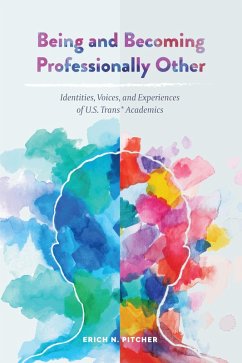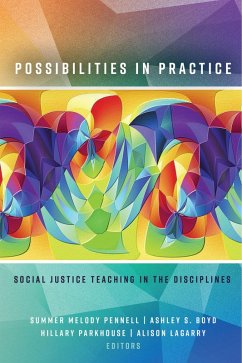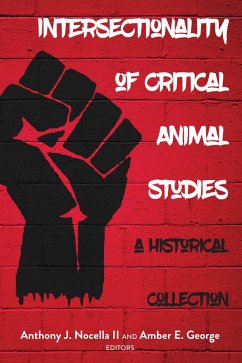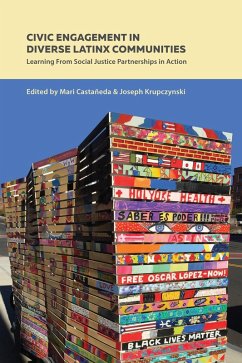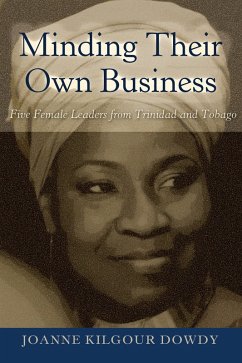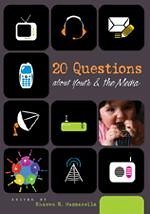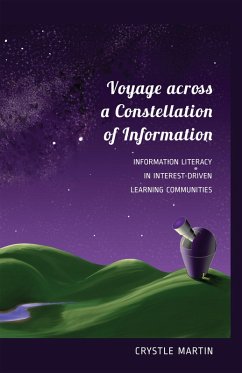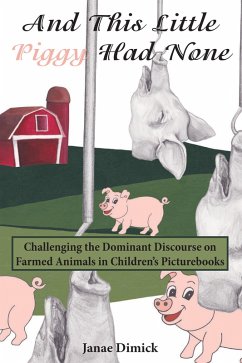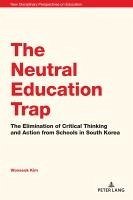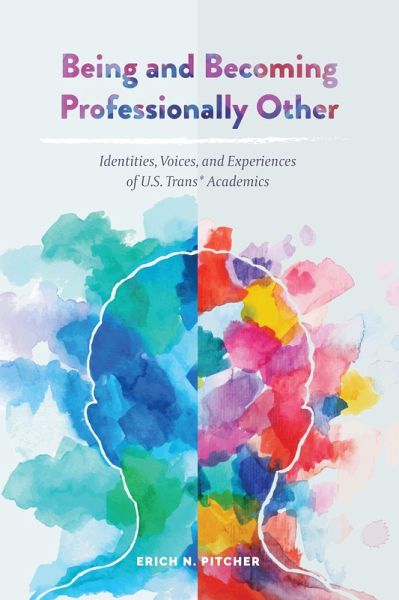
Being and Becoming Professionally Other (eBook, ePUB)
Identities, Voices, and Experiences of U.S. Trans* Academics
Versandkostenfrei!
Sofort per Download lieferbar
Statt: 103,70 €**
43,95 €
inkl. MwSt.
**Preis der gedruckten Ausgabe (Gebundenes Buch)
Alle Infos zum eBook verschenkenWeitere Ausgaben:

PAYBACK Punkte
22 °P sammeln!
Being and Becoming Professionally Other: Identities, Voices, and Experiences of U.S. Trans* Academics is a path-clearing book that provides a rich, in-depth account of the lived experiences of 39 transgender or trans* academics.Despite increased visibility of trans* issues within higher education, college environments remain unfriendly, and in some cases, overtly hostile to trans* people. While there is much discussion of gender equity and faculty diversity, these conversations rarely include trans* academics' voices. As a study participant described, trans* voices are often out of place at be...
Being and Becoming Professionally Other: Identities, Voices, and Experiences of U.S. Trans* Academics is a path-clearing book that provides a rich, in-depth account of the lived experiences of 39 transgender or trans* academics.
Despite increased visibility of trans* issues within higher education, college environments remain unfriendly, and in some cases, overtly hostile to trans* people. While there is much discussion of gender equity and faculty diversity, these conversations rarely include trans* academics' voices. As a study participant described, trans* voices are often out of place at best-or worse, completely discounted in academe, a betwixt place.
By not fitting into a particular mold, trans* academics experience a variety of adverse events including microaggressions, outright hostility, and exclusion. These adverse experiences create a context wherein trans* academics engage in various forms of additional labor. While not necessarily unique to trans* academics, these various forms of labor provided evidence to support my assertion that trans* academics are or become professionally Other. Given this Other status, trans* academics must form broad coalitions to bring about change within higher education organizations. Additionally, higher education leaders have an opportunity to change organizational contexts to better support trans* academics by radically re-imagining colleges and universities.
This text would be an excellent choice for graduate and undergraduate courses about gender, qualitative research methods courses, and courses about academic careers, and organizational theories.
Despite increased visibility of trans* issues within higher education, college environments remain unfriendly, and in some cases, overtly hostile to trans* people. While there is much discussion of gender equity and faculty diversity, these conversations rarely include trans* academics' voices. As a study participant described, trans* voices are often out of place at best-or worse, completely discounted in academe, a betwixt place.
By not fitting into a particular mold, trans* academics experience a variety of adverse events including microaggressions, outright hostility, and exclusion. These adverse experiences create a context wherein trans* academics engage in various forms of additional labor. While not necessarily unique to trans* academics, these various forms of labor provided evidence to support my assertion that trans* academics are or become professionally Other. Given this Other status, trans* academics must form broad coalitions to bring about change within higher education organizations. Additionally, higher education leaders have an opportunity to change organizational contexts to better support trans* academics by radically re-imagining colleges and universities.
This text would be an excellent choice for graduate and undergraduate courses about gender, qualitative research methods courses, and courses about academic careers, and organizational theories.
Dieser Download kann aus rechtlichen Gründen nur mit Rechnungsadresse in A, D ausgeliefert werden.




